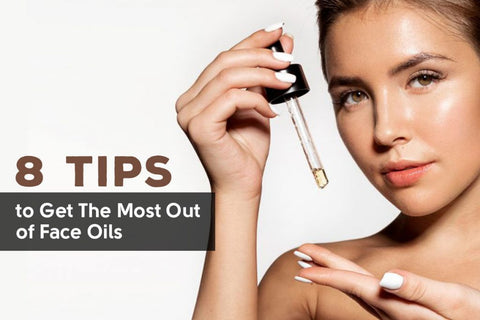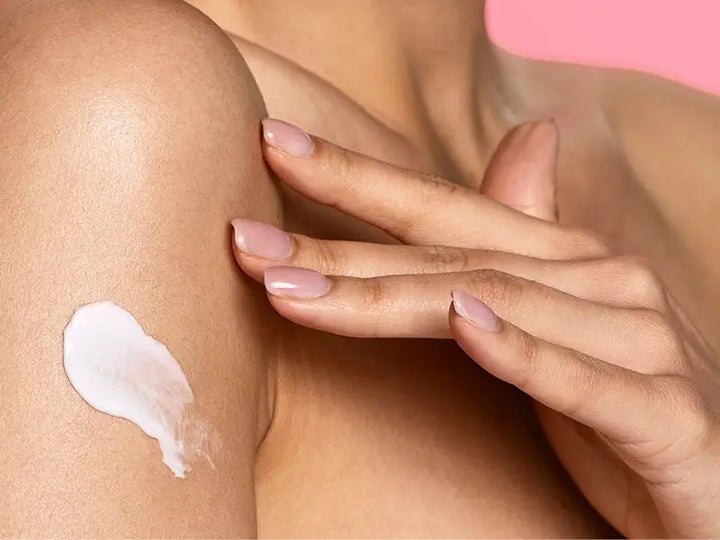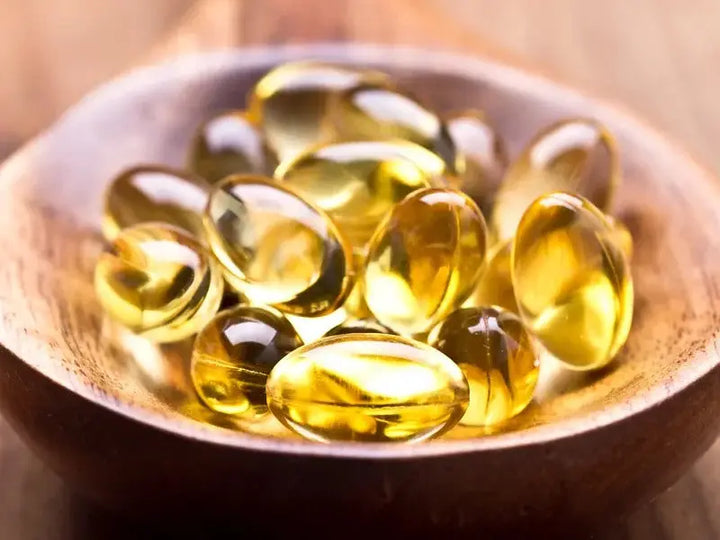Face oils are now popularly used as a skincare ingredient because they provide a range of benefits. However, with so many options out in the market, it can be quite tricky to choose the right face oil suited for your skin.
To guide you, here’s an article that presents the best types of face oil for every skin type as well as some essential tips to make the most out of its beauty benefits.
The Best Face Oils According to Your Skin Type
NORMAL SKIN
With normal skin, you don’t have to worry about getting clogged pores, dryness, and even irritation. In short, you have the type of skin that most people want to achieve and it’s quite simple to find the best face oil for your skin type.
1. ARGAN OIL
Argan oil is often referred to as “liquid gold” due to the various benefits it provides for the skin. Rich and soothing, this face oil contains vitamin E—an antioxidant that can prevent those pesky and unwanted dark spots, fine lines, and other kinds of skin damage.
Tip: Need help in treating frizzy hair or split ends? You can also use argan oil as a hair conditioner as it’s proven to make hair softer and shinier.
2. SQUALANE OIL
Squalene is a natural oil produced not only by olives and rice bran but also your own skin. However, on its own, it is unstable, reacts violently with oxygen and can ultimately clog the pores.
On the other hand, squalane face oil has a stable, longer shelf life that has a similar molecular structure to your skin. This allows it to be easily absorbed by your pores to target specific skin concerns at a cellular level. Furthermore, it can boost collagen production which makes your skin look firmer and plumper for an instant glow!
3. RETINOL OIL
Retinol oils can hydrate your skin, brighten your tone, and clear your breakouts (on the off chance that you have bad days!) without irritating your skin.
DRY SKIN
Dry skin produces less sebum than normal skin which results in cracking, peeling, and even itchiness. Typically, you should look for face oils that are rich in oleic acid to help hydrate the skin, lock in moisture, and lessen irritation from dryness.
4. MARULA OIL
Marula oil contains omega fatty acids which help condition dry skin. It gives essential moisture and can even reduce any redness you might encounter. Furthermore, this oil is not heavy on the skin so you won’t feel greasy at all.
5. ALMOND OIL
For centuries, almond oil has been used to treat dry skin conditions, such as eczema, psoriasis, and dermatitis. High in vitamin A, this oil can also stimulate the production of new skin cells which ultimately results in smooth fine lines.
Tip: If you’re allergic to nuts, it’s best to avoid using almond oil on your skin.
6. AVOCADO OIL
Avocado face oil contains beneficial nutrients such as vitamin E, lecithin, and potassium that help nourish and moisturize dry skin. These nutrients are easily absorbed by the epidermis which also helps to form new skin.
OILY SKIN
Do you always look greasy when you view yourself in the mirror? If you answered yes, you probably have oily skin.
This skin type is characterised by visible pores than usual and a shiny complexion. However, you might argue about how face oils can benefit your already oily skin. On the contrary, it can help control the secretion of excess sebum which ultimately makes you appear less oily.
7. PEPPERMINT OIL
Peppermint is a tried and tested ingredient used in face oils that can regulate your skin’s sebum production and prevent clogged pores. So say goodbye to those annoying skin concerns by adding this face oil to your beauty routine.
Tip: If you have redness or burns, peppermint can also be used to relieve these discomforts as it has both soothing and cooling properties.
8. GRAPESEED OIL
Grapeseed oil is a natural astringent that has the ability to get rid of excess grease in your face. It can also tighten your pores, leaving your skin mattified.
9. TEA TREE OIL
Tea tree oil is an excellent skin treatment for those with oily skin because of its antifungal and antibacterial properties. It can help stabilize your sebaceous glands by penetrating deep into the skin and unclogging your pores.
ACNE-PRONE SKIN
If you have oily skin, you may also have acne-prone skin as too much sebum production can lead to clogged pores and acne.
It’s best to skip irritating acne treatments and opt to apply face oils instead. It can restore the nourishment of your skin which is stripped away by the harsh ingredients usually found in most beauty products.
10. POMEGRANATE OIL
Pomegranate oil helps fight the bacteria in your pores causing the inflammation and break-outs in your face. Perfectly suited for those with oily skin, this oil is lightweight so you won’t look greasy at all!
11. ROSEHIP OIL
Loaded with skin-nourishing vitamins and essential fatty acids, rosehip oil can treat inflamed and acne-prone skin. It also contains phenols which are proven to have antibacterial and antifungal properties without clogging your pores.
Furthermore, this carrier oil can help fade those unwanted acne scars and lessen the overall red000ness in your face.
Did You Know? According to a study conducted in 2015, people who had undergone surgery found rosehip oil effective in treating their scars.
12. COCONUT OIL
Coconut oil has anti-viral and anti-microbial properties that limit the growth of bacteria and reduce the appearance of swelling acne. It can also be used as a deep facial cleanser which gently exfoliates the skin and unclogs your pores leading to healthier skin.
COMBINATION SKIN
Combination skin consists of dryness in some areas of the face and oiliness in other parts, such as the T-Zone (forehead, nose, chin). Since the skin type varies, the type of face oil you apply should also adapt to the different areas of the face.
13. JOJOBA OIL
Jojoba oil can break down and dissolve sebum to control excessive oiliness in some parts of your face. However, it’s a lightweight and breathable oil that provides a bit of moisture for drier areas. This is the reason why it’s perfectly suited for those with combination skin.
14. MARULA OIL
Marula oil has anti-oxidant properties that help protect your skin away from pollution and other environmental stressors. It can also be easily absorbed by your skin which makes it a great moisturizer.
Overall, this essential oil can reduce the amount of grease in your face while still keeping your face hydrated.
15. FLAXSEED OIL
Rich in fatty acids, flaxseed oil can eliminate acne breakouts and treat dry skin. The oil also helps seal in the moisture in your face which keeps the skin hydrated and healthy. Furthermore, it can minimize wrinkles, dark spots, and puffiness.
Tip: If you’re looking for a natural and non-irritating makeup remover, consider trying flaxseed oil.
SENSITIVE SKIN
Those with sensitive skin type often experience itching, drying, redness, and even burning. That’s why you have to be careful of what you apply to your face as it can further trigger these complications. Here are the types of face oils suited for your skin.
16. ALOE VERA OIL
Packed with antioxidants, anti-inflammatories and fatty acids, aloe vera is the perfect face oil for sensitive skin. These properties help protect skin from harmful bacterias, calm irritation and nourish damaged skin.
In addition, it is a natural astringent which makes it suitable for sensitive skin that’s also acne-prone.
17. MORINGA OIL
Much like aloe vera, moringa oil also has anti-oxidant and anti-inflammatory properties to heal sensitive skin. It can also be used as a moisturizer for sensitive skin with dryness. Just simply layer this lightweight oil under your makeup.
18. CASTOR OIL
Castor oil can reduce swelling and puffiness in your face. It’s also effective in treating inflamed acne and eliminating eye bags to give you skin that looks fresh and healthy.
However, simply knowing the best face oil for your skin type is not enough. You should also know how to properly apply it to maximise the benefits it brings to your skin.
8 TIPS TO GET THE MOST OUT OF FACE OILS

1. USE FACE OIL AFTER APPLYING WATER-BASED PRODUCTS
Investing in face oils adds another step to your beauty routine. So if you’re wondering when you should use it, it’s advisable to use it after applying your moisturizer. This way, you’ll be able to reap all the benefits brought by your face oil.
2. AVOID RUBBING FACE OIL
If you rub the face oil onto your skin, you’re actually damaging your pores and preventing the product from being properly absorbed. Instead, gently press the face oil onto your face for optimal results.
3. BLEND DIFFERENT FACE OILS
You can combine different face oils for added benefits. For instance, you can blend tea tree essential oil with lavender oil. The former is extremely effective in treating acne while the latter reduces the puffy appearance in your face.
4. MIX WITH A MOISTURIZER
If you’re always on-the-go, it’s perfectly fine to mix your face oil with a moisturizer. You can enjoy an increase in its potency as well as glowing skin.
Tip: If you want to achieve extra dewiness and hydration, you can also mix face oil with your foundation or primer.
5. APPLY A FEW DROPS
Some face oils can be expensive despite containing little amount. However, all you really need is a few drops to reap the various benefits it gives.
Typically, you should apply anywhere between three to six drops of face oil once a day. However, if you have drier skin than usual, you can use a bit more oil.
6. SKIP THE EYE CREAM
Skip the eye cream and switch to face oils instead. Since it is a natural and organic beauty product, you can use it on the delicate areas of your face, such as your under eyes. Simply dab a drop of oil on this area and you’ll instantly be hydrated.
7. HYDRATE YOUR LIPS
Have dry and chapped lips? Worry not as you can also use face oils to hydrate your lips along with the rest of your face.
8. TRY ON YOUR BROWS AND LASHES
Try applying a drop or two of essential oils on your brows and lashes. Argan oil, in particular, can moisturize and stimulate the growth of hair in these areas.
How can face oils improve the health and appearance of your skin?
Face oils can improve the health and appearance of your skin by providing essential nutrients and hydration, helping to balance oil production, reducing inflammation and redness, and promoting the skin's natural regeneration process. They can also help to improve the skin's barrier function, protect against environmental damage, and boost collagen production for a more youthful and radiant complexion.
What makes face oils a superior choice compared to other moisturizers?
Face oils are a superior choice compared to other moisturizers because they are able to deeply penetrate the skin, providing intense hydration and nourishment. They also contain essential fatty acids and antioxidants that help to repair and protect the skin, leaving it smooth, plump, and radiant. Additionally, face oils are versatile and can be customized to address specific skin concerns, making them a popular choice for those looking for more targeted skincare solutions.
Which skin types can benefit the most from incorporating face oils into their routine?
Face oils can benefit all skin types, but they are especially beneficial for those with dry or dehydrated skin. The oils help to provide hydration and nourishment to the skin, improving overall texture and moisture levels. Additionally, face oils can also benefit those with oily or combination skin by helping to balance oil production and prevent excess sebum.
Can face oils replace your regular moisturizer, or should they be used in addition to it?
Face oils can be used to replace your regular moisturizer for some people, especially those with dry or mature skin. However, for others with oily or combination skin, face oils may be best used in addition to your regular moisturizer to provide extra hydration and nourishment. It ultimately depends on your skin type and personal preferences.
ALSO READ:
Face oils bring numerous benefits to your skin. However, it’s important to choose the right one suited for your skin type to get only the best beauty benefits out of it.



















